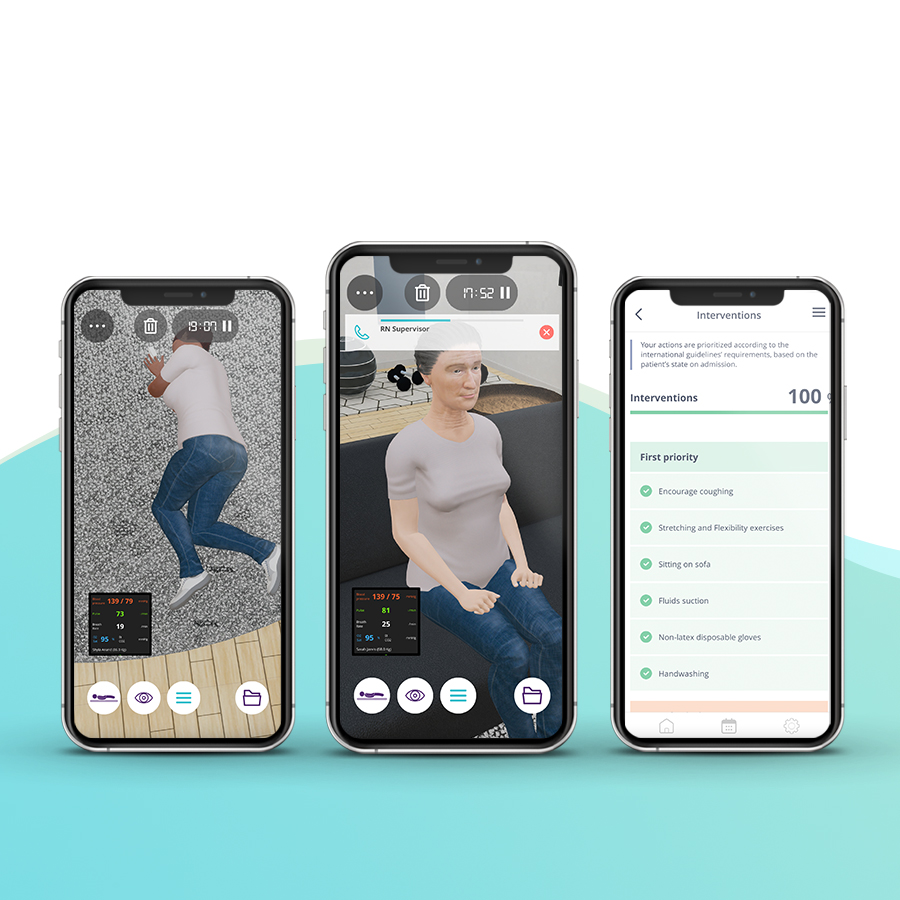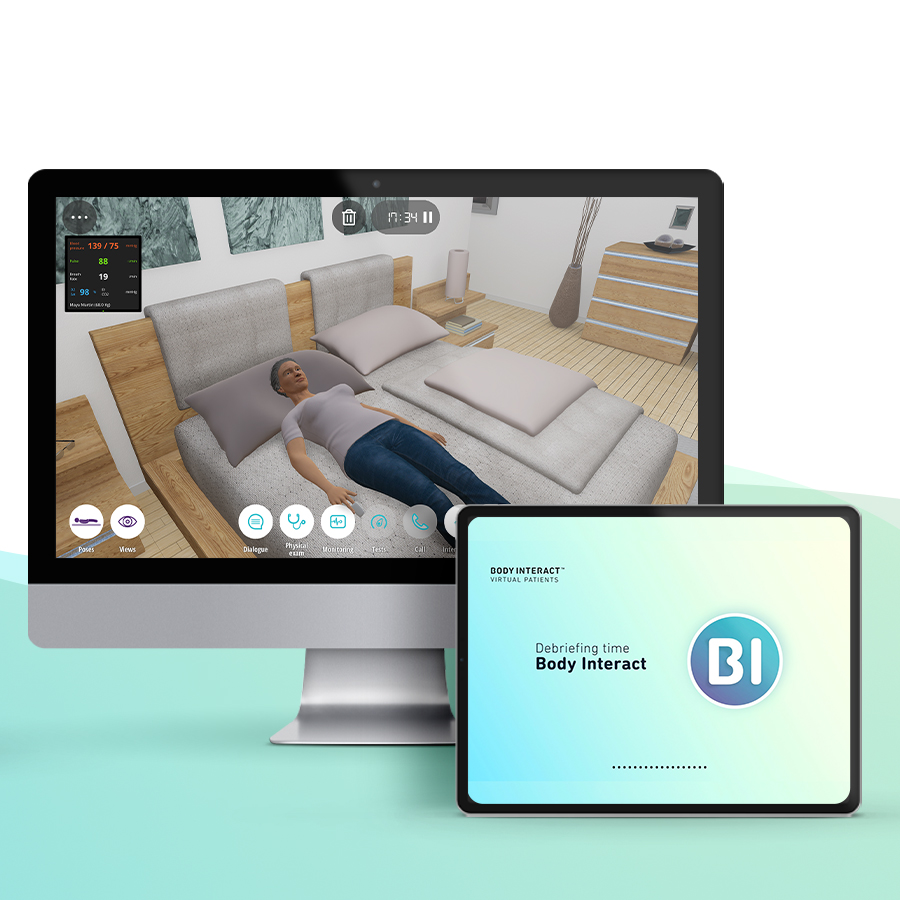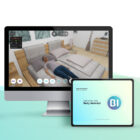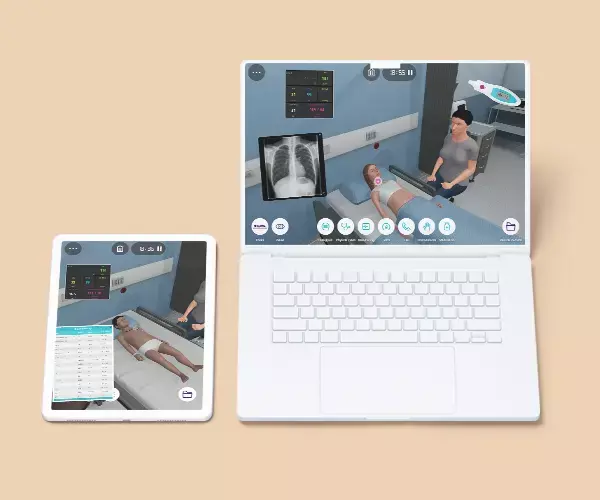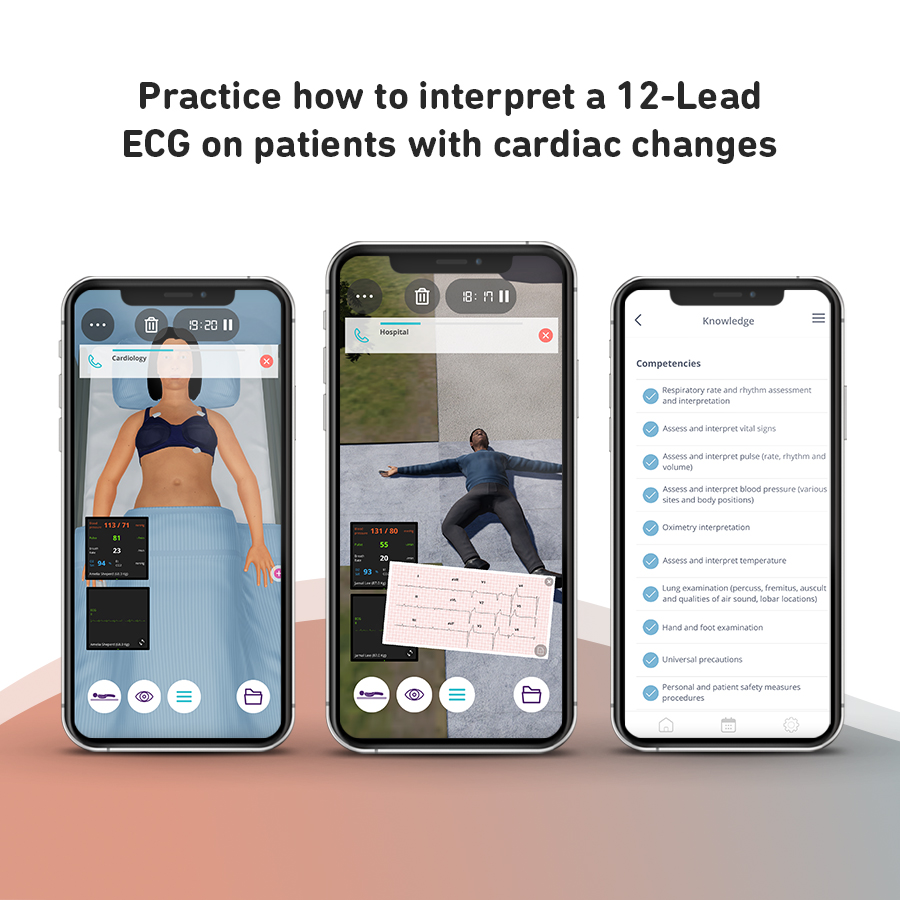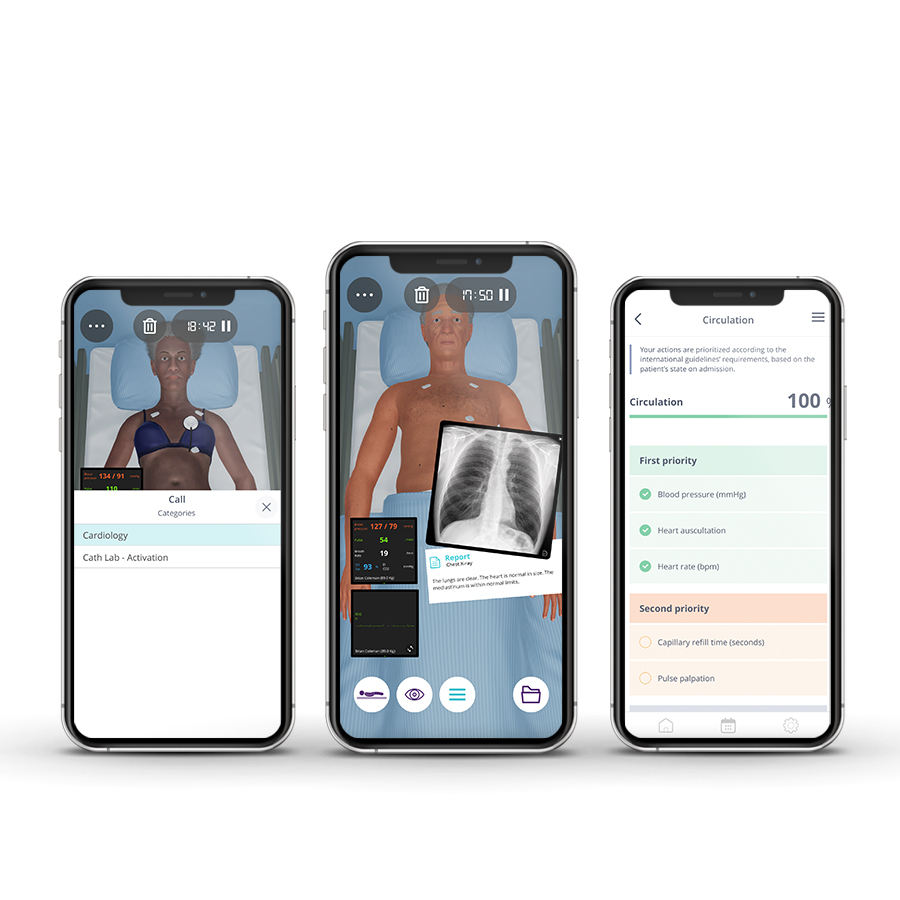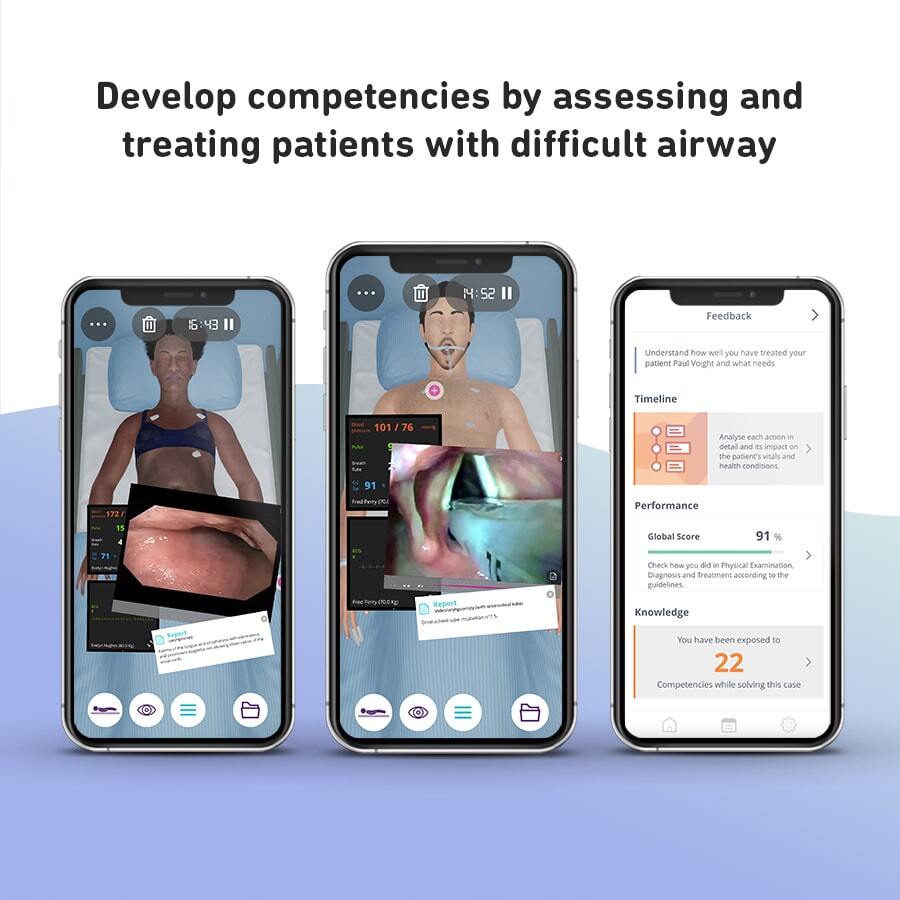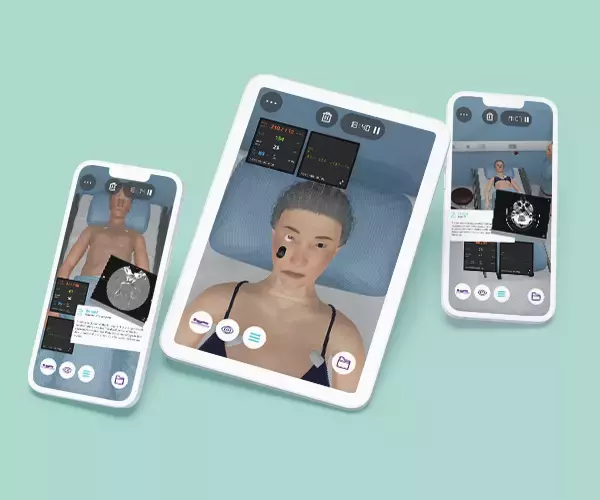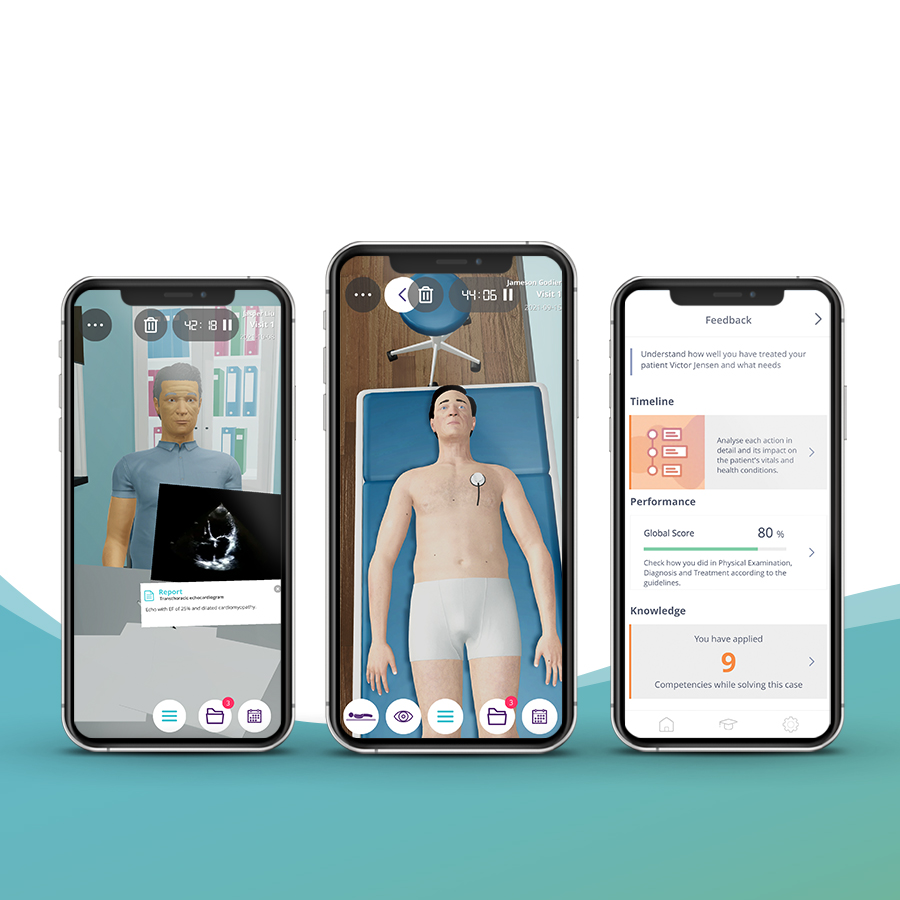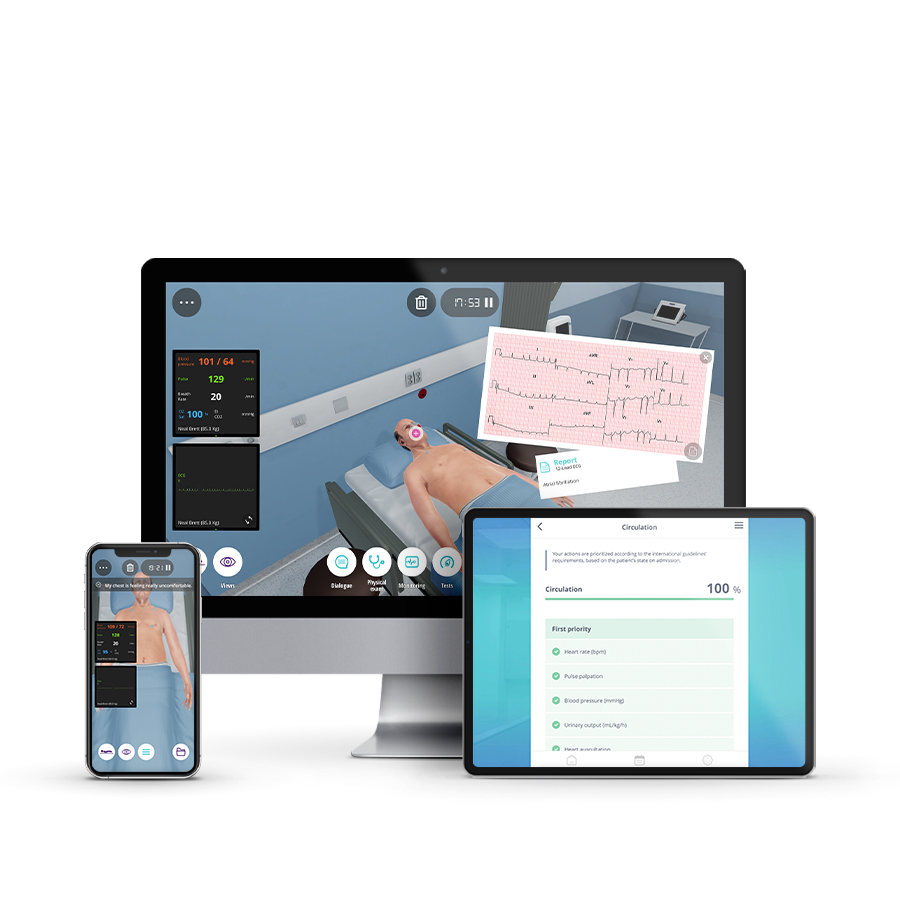Description
Course type: Online; Self-Paced
Specialty: Neurology
Language: English / Portuguese
Resources: Handbook
Level: Intermediate
Target: PSW
Modules: 5
Durations: 2 months
Time Effort: Up to 110 minutes per module
Certificate: Yes
Course Description
As a Support Worker, you perform various functions to ensure that the different needs of patients are always met. To secure the provision of quality care and patient safety, it is important to learn the essential skills to support individuals in the final stages of their life and care for patients with dementia or neurological diseases.
The Care and Support Worker Training Course provides a full range of knowledge and skills, from communication to medication administration, needed to support individuals with neurological conditions and who require help to ensure the quality of life.
Course Overview
- 5 Modules
• 5 virtual patient cases of an intermediate level of complexity - Average Time to practice (per module)
• Clinical Scenario: 20 minutes per attempt (3 attempts: 60 minutes)
• Final attempt (if applicable): 20 minutes
• Multiple Choice Question: 5 minutes
• Feedback Area: 10 minutes
• Learning Objectives and Scientific References: 5 minutes
• Debriefing Video: 10 minutes - Online, Self-paced
• You have up to 2 months to complete the 5 modules at your own pace. The course can be accessed through Body Interact at any time. - Certificate of Completion
• After completing the course, you will receive a Certificate of Completion that can be added to your CV or Resume.
Learning Objectives
• Know how to provide person-centered care to meet clients’ individual needs
• Identify the different types of health issues, causes, and symptoms
• Understand how to administer medication and handle medicines in compliance with UK regulations
• Demonstrate a solid understanding of Cerebral Palsy, Epilepsy, Motor Neuron Disease, Dementia, Parkinson, Alzheimer and Type 2 Diabetes
• Learn how to provide quality care for patients with several clinical conditions
• Follow best practices when performing duties to prevent the risk of complications and ensure a safe working environment
Clinical Competencies
Safety
• Universal safety measures procedures
• Promote patient safety
• Collect patients clinical information
• Establish drug dosing for common medications
Airway and Breathing
• Basic airway management
• Airway suctioning
• Respiratory rate and rhythm assessment and interpretation
• Oximetry interpretation
Circulation
• Assess and interpret pulse and blood pressure
Disability
• Mental status assessment (level of arousal, response to auditory stimuli, to visual stimuli, noxious stimuli)
Exposure
• Assess and interpret temperature
• Hand and foot examination
• Wound care and lesion qualities assessment (petechiae, urticaria, jaundice, vesicles, etc)
• Handle and position the patient body
• Refer to healthcare/ medical specialties
• Contribute to the implementation of physiotherapy interventions
Module 1 – Clinical Consequence of Cerebral Palsy
Context: The term cerebral palsy refers to a group of neurological disorders that permanently affect body movement, muscle coordination, and balance. The cause of brain damage, which affects body movement, can also be the cause of epilepsy.
Virtual Scenario: Ms. Anand has cerebral palsy. Therefore, she requires full-time care: personal care, support with food and fluids, seizure monitor and management, moving and handling, catheter and bowel care, participation in social activities.
Module 2 – Motor neuron disease complications
Context: Motor neuron diseases are a group of progressive neurological disorders that destroy motor neurons, the cells that control skeletal muscle activity such as walking, breathing, speaking, and swallowing.
Virtual Scenario: Mrs. Martin was diagnosed with motor neuron disease, and her symptoms are progressively worsening. She now needs 24-hour care to support her normal daily activities.
Module 3 – Dementia Awareness
Context: Dementia is not a specific disease but is rather a general term for the impaired ability to remember, think, or make decisions.
Virtual Scenario: Mrs. Jarvis has been diagnosed with dementia for some years. Her symptoms of memory loss, confusion, and mood change are progressively worsening with the need for full-time care and supervision.
Module 4 – Parkinson’s disease complications at home
Context: Parkinson’s disease is a long-term degenerative disease of the central nervous system that primarily affects the motor system. It is a disease that involves the brain and leads to movement and non-movement symptoms in patients.
Virtual Scenario: Mrs. Murray was diagnosed with Parkinson’s disease some years ago, and her symptoms have progressively worsening requiring support for personal care, meal preparation, medication management, and household duties.
Module 5 – Type 2 Diabetes management in the nursing home
Context: Type 2 diabetes appears to be associated with cognitive dysfunction and a higher risk of developing neurocognitive disorders, including Alzheimer’s disease
Virtual Scenario: Mr. Fisher feels tired and hungry. He has a past medical history of type 2 diabetes and Alzheimer’s disease.
Authors
With a multidisciplinary group of international clinical reviewers, Body Interact ensures a high standard of accuracy, diversity, and impact of its course.
Body Interact has developed this course based on European Society of Cardiology (ESC), utilizing advanced medical simulation technology with virtual patients
Scientific References
- The National Institute for Health and Care Excellence: NICE. (2015). Type 2 diabetes in adults: management [NG28].
- The National Institute for Health and Care Excellence: NICE. (2016) Diabetes in adults [QS6].
- The National Institute for Health and Care Excellence: NICE (2019). Dementia [CG161].
- The National Institute for Health and Care Excellence: NICE (2013). Falls in older people: assessing risk and prevention [CG161].
- The National Institute for Health and Care Excellence: NICE (2014). Managing medicines in care homes [SC1].
- Burgon C, Darby J, Pollock K, et al. Perspectives of healthcare professionals in England on falls interventions for people with dementia: a qualitative interview study. BMJ Open. 2019;9(2):e025702.
- Fernando E, Fraser M, Hendriksen J, Kim CH, Muir-Hunter SW. Risk Factors Associated with Falls in Older Adults with Dementia: A Systematic Review. Physiotherapy Canada. 2017;69(2):161-170.
- Schüssler S, Lohrmann C, eds. Dementia in Nursing Homes. Springer International Publishing; 2017.
- Borrione P, Tranchita E, Sansone P, Parisi A. Effects of physical activity in Parkinson’s disease: A new tool for rehabilitation. World Journal of Methodology. 2014;4(3):133-143.
- Conradsson D, Löfgren N, Nero H, et al. The Effects of Highly Challenging Balance Training in Elderly With Parkinson’s Disease. Neurorehabilitation and Neural Repair. 2015;29(9):827-836.
- DeMaagd G, Philip A. Parkinson’s Disease and Its Management. Pharmacy and Therapeutics. 2015;40(8):504-532.
- The National Institute for Health and Care Excellence: NICE. (2017). Parkinson’s disease in adults [NG71].
- The National Institute for Health and Care Excellence: NICE. (2018). Parkinson’s disease [QS164].
- Sparrow D, DeAngelis TR, Hendron K, Thomas CA, Saint-Hilaire M, Ellis T. Highly Challenging Balance Program Reduces Fall Rate in Parkinson Disease. Journal of neurologic physical therapy : JNPT. 2016;40(1):24-30.


